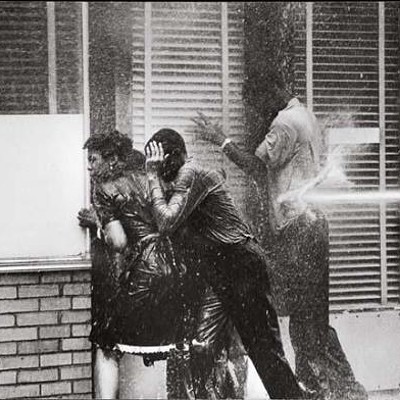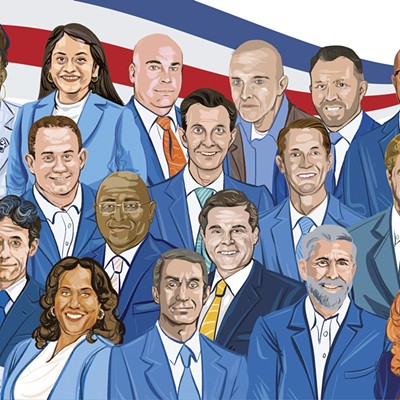Friday, October 9, 2009
Book Him
The tragic news that the Carnegie Library system will likely be shutting down several branch locations has provoked outrage -- and rightly so. (Brian O'Neill has said all I could ever say about this civic embarrassment in a terrific column earlier this week.) And because there's a mayoral election coming up, two of Mayor Luke Ravenstahl's challengers have blasted the mayor for not doing enough to prevent it. (The city provides only $40,000 a year in direct funding, some critics grouse.) I've also heard plenty of muttering about lapses on the part of library management.
But let's be clear. Whatever misjudgments library excecutives may have made, they are likely dwarfed by a misjudgment the rest of us made a decade ago.
And the blame surely isn't with Ravenstahl: The libraries are funded through the Regional Assets District tax, which was created, in fact, partly to provide a more stable funding source than local governments were likely to furnish. Yes, the city only shells out $40,000 a year ... but that actually ain't bad, given that it's under the thumb of two state financial-oversight boards. And the RAD tax -- a countywide 1 percent sales tax -- funds them to the tune of $16.7 million a year.
The RAD could provide more. Except what we're really seeing here is the consequence of yet another economic bubble bursting. Dotcom mania and real-estate mania passed Pittsburgh by. But now we're paying the price for sports-mania ... and the highly speculative investments we made a decade ago in order to feed it.
In the late 1990s, you'll recall, the Steelers and Pirates were demanding new playgrounds. And when a 1997 referendum to pay for construction by raising the sales tax failed, local officials -- led by Mayor Tom Murphy -- hit on a new idea. Why not use Regional Assets District money to finance stadium construction? The RAD fund was already paying out $10 million a year for sports facilities -- so why not add another $3 million or so to it each year?
At the time, there were a few of us who thought this was a bad idea. The RAD tax, in our view, was supposed to benefit parks, arts groups ... and libraries. Wouldn't we be diverting necessary funds from those groups to build new luxury boxes?
But the other side argued that hey, sports are cultural institutions too. I recall one Post-Gazette sports columnist -- I think it was Bruce Keidan, but I could be wrong -- arguing that he never used libraries, so why should his tax dollars go to support them? That was a not-uncommon sentiment at the time, and I sure hope those folks are happy today.
But in any case, the supporters argued that libraries and other groups wouldn't even feel the pinch. As one account of the period notes, "the RAD pool had been growing steadily over the past several years, reflecting a generally robust local economy. Therefore [supporters] argued, there would be more money for everything, including the new stadiums and the convention center."
It's clear now that much of the late 1990s/early 2000 economic prosperity was an illusion. But at the time, we chased priorities not much different from a hedge fund manager buying an $8,000 wastepaper basket. We invested in circuses when everybody had enough bread. And now that the economy is struggling, resources people need -- like libraries -- aren't going to be there for them. That extra $3 million might come in handy these days: It's more than twice the library system's current shortfall. But too late -- the money being spent on stadiums isn't discretionary. It's a legally binding contractual obligation.
But look on the bright side: Maybe you can pick up a few extra bucks scalping tickets on Sunday afternoons. And the Pirates are bound to win someday -- I bet you'll feel much better about your job prospects when that happens.
This space makes no apologies for Luke Ravenstahl. But if it's fair to blame any mayor for what is happening to the libraries, the guy to point the finger at is Tom Murphy.
Tags: Slag Heap










